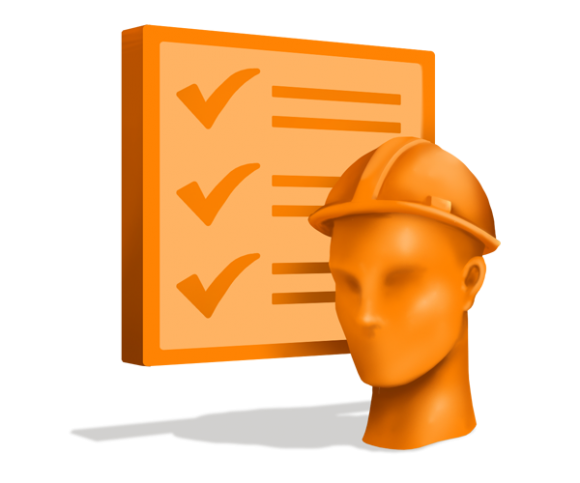Message to our Stakeholders
2020 was a year of change for the Safety Codes Council. This report is titled Shift-Adapt-Connect and covers the shifts that took place in our business practices this year, the actions taken in order to adapt to change, and the efforts made to ensure that we remained connected to our clients and stakeholders.

Shifting Gears
Like so many organizations in Alberta, the COVID-19 pandemic changed the way the Council’s services needed to be offered to clients. In response to this unexpected disruption, staff transitioned to remote work and in-person services and meetings moved online.
This year also saw the Council assuming responsibility for services related to storage tank management in unaccredited areas of the province. The new Storage Tank Management division of the Alberta Safety Codes Authority successfully assumed these services, met with key stakeholders, and laid the groundwork for improvements to existing business practices. For more information on this transfer, see “Storage Tank Management: A New Mandate and a New Opportunity.”
In August, members and staff welcomed Amina Deiab as President and CEO. In her time with the Council, Amina has met with clients and stakeholders and begun to lay the groundwork for our 2021-2025 Strategic Plan.

Adapting to Change
In 2020, it was more important than ever to ensure that Council services were being offered in an effective and accessible manner. This meant evaluating processes and reducing red tape to help our clients save on time and resources.
By leveraging technology and maintaining a flexible approach to our business practices, we were able to ensure that stakeholders experienced limited interruptions; all while taking steps to improve access for individuals and organizations across the safety codes system.

Connecting with You
The Council has always played a key role in ensuring that connections between government, industry, and regulators remain strong. In 2020, open communication and support for stakeholders became a priority in order to ensure that we continued to address important and emerging issues in the system at large.
Safety codes sub-councils continued to meet virtually, regional meetings for safety codes officers moved online to become available to a broader audience, and we promoted greater knowledge in the safety codes system through low-cost online workshops and free technical sessions with Alberta Municipal Affairs. Our website redesign, launched in November, provides a sustainable platform that is being used to promote better information sharing within the safety codes system, including safety tips brochures, permitting information, and free code books.
Reducing Red Tape: Easing Administrative Burdens During and After COVID-19
The Council remains committed to evaluating our procedures in order to reduce red tape. In 2020, we focused on making improvements to meet the challenges brought on by the COVID-19 pandemic, ensuring service continuity and reducing administrative burdens in order to support our partners in maintaining safety standards. At the same time, we leveraged technology to eliminate barriers to information access.
Responding to COVID-19
In order to accommodate COVID-19 protocols, our in-person services were transitioned online whenever possible. Sub-council meetings, appeals, and the Annual General Meeting were all held virtually. In order to address mailing delays, digital ID cards and certificates for safety codes officers (SCOs) and master electricians became available for download on Council Connect. Online proctoring was made available for all SCO and master electrician exams, enabling individuals to move through the certification process with greater certainty.
With new protocols around social distancing, accredited organizations faced challenges for administering safety services. In response, the Council supported flexible approaches to inspections, allowing safety codes officers and accredited organizations to monitor compliance through photographs, video, and real-time inspections via web conferencing.
Improving Access to Information
We also focused our efforts on removing barriers to accessing information about our business practices, as well as educational content of interest to a diverse group of clients and stakeholders.
We produced several videos aimed at increasing awareness of the Council’s role as well as our procedures, including a video on the role of the sub-councils and another on the Council’s appeals process, which provided guidance for appellants and respondents. All videos produced by the Council were made available on multiple public platforms.
Our redesigned website, launched in November, provides a sustainable platform to disseminate information to clients and stakeholders. Along with improved access to information on our practices and procedures, the new website provided easier access to documents that assist with consistent code interpretation, including the Barrier-Free Design Guide, safety tips brochures, and a new User’s Guide to STANDATA on12-Storey Encapsulated Mass Timber Construction.
For safety codes professionals, we began offering our Continuing Education workshops at a low cost and in a virtual format. These workshops provided easier access for SCOs to attain Continuing Education credits, and the content of the courses addressed key knowledge gaps identified by our clients. Additional workshops were also developed in 2020, including “Variances: Gearing Up for Innovation and Safety,” which provides training for safety codes professionals as well as professionals within the construction industry.
We also began to offer free online alternatives to Regional Meetings. These sessions, presented by the Provincial Administrators and cohosted by the Council and professional organizations for SCOs, provided updates on emerging issues in code interpretation and enforcement. By the end of 2020, we offered sessions in the Plumbing and Gas discipline and the Electrical discipline, as well as sessions on the National Energy Code for Buildings and on new requirements around 12-storey Encapsulated Mass Timber Construction. Sessions were recorded and the videos were released on multiple public platforms.
An Adaptive Approach
One of the Council’s strengths as an organization is our ability to proactively assess the policies, procedures, and platforms that are used in delivering services to our clients. The COVID-19 pandemic challenged how we fulfil many aspects of our mandate, but by remaining focused on providing accessible services and promoting greater knowledge within the safety codes system, we ensured that our clients and stakeholders received consistent support throughout the year.
Storage Tank Management: A New Mandate and a New Opportunity
On 8 June 2020, responsibility for services related to flammable and combustible liquid storage tank systems transferred from the Petroleum Tank Management Association of Alberta (PTMAA) to the Safety Codes Council.
Update on Our 2020 Strategic Goals
Our strategic goals for 2020 were comprised of 12 initiatives. Click below to view specific targets and results.
Sub-Councils – Alberta’s Safety Network
Through sub-councils, the Safety Codes Council helps represent industry perspectives in matters of code development, interpretation, and education.
Sub-council members are volunteers nominated by organizations that represent Alberta’s industries and regions. These individuals represent diverse specialties, including engineering, architecture, contracting, manufacturing, corporations, safety codes officers, labour, municipalities, and education.
Message from the Chair
As a unique and challenging year comes to an end, the Safety Codes Council remains committed to fulfilling our mandate while helping Albertans meet the challenges brought by the COVID-19 pandemic and widespread economic uncertainty.
Like many organizations across the province, the Council transitioned our staff and our services to an online model. Thanks to the hard work of many departments, we were able to maintain continuity for our clients and support our partners in the system.
While navigating these unexpected challenges, we continued to focus on reducing red tape in our business practices. We supported changes in system oversight by assuming responsibility for storage tank management in unaccredited areas of Alberta. Council staff worked hard to ensure that the transition was smooth, and we are looking forward to finding ways to improve how we deliver these services.
The Board oversaw a number of changes this year, in governance as well as in staffing. Our first virtual AGM was held on October 21. Membership voted to approve several significant Bylaw changes, including adding two new sub-councils to better meet the needs of specialized areas of industry and the dissolution of the Technical Coordinating Committee (TCC) through the application of best practices and the maturing of the relationship between the Board, Council, and its sub-councils. We greatly appreciate the work done, over many years, by those who have served on TCC.
After 19 years with the Council, Brian Alford retired as President and CEO in July. The Board is grateful to Brian for his leadership, and we wish him the best in his retirement.
Amina Deiab began work as President and CEO soon after. Amina spent her first months developing our 2021-2025 Strategic Plan, leveraging the experience of our staff, members, and stakeholders in order to ensure that our planning reflects the goals and opportunities that we share with our partner organizations.

Despite the difficulties that we all experienced this year, the Council and the safety codes system remain strong. As we look to our next strategic cycle, we are well-positioned to use our role as a leader and regulator to excel in our mandate and support Alberta’s economic recovery.
Board of Directors Summary
Board Director Meeting Attendance
Current Directors
Kevin Griffiths
Chair, Safety Codes Council Board of Directors
Board Meeting Attendance: 7/7
Committee Meeting Attendance: 4
Jill Matthew
Chair, Governance and Nominating Committee (until August 2020)
Chair, Human Resources and Governance Committee (as of September 2020)
Board Meeting Attendance: 7/7
Committee Meeting Attendance: 5/5
Tom Burton
Rural Municipalities of Alberta
Member, Audit and Risk Committee
Board Meeting Attendance: 7/7
Committee Meeting Attendance: 5/5
Charlene Smylie
Alberta Urban Municipalities Association
Member, Governance and Nominating Committee (until August 2020)
Member, Human Resources and Governance Committee (as of September 2020)
Board Meeting Attendance: 7/7
Committee Meeting Attendance: 5/5
Owen Edmondson
Vice-Chair, Safety Codes Council Board of Directors
Chair, Audit and Risk Committee
Member, Governance and Nominating Committee (until August 2020)
Board Meeting Attendance: 7/7
Committee Meeting Attendance: 7/8
Marcie Kiziak
Chair, Human Resources and Compensation Committee (until August 2020)
Vice-Chair, Human Resources and Governance Committee (as of September 2020)
Board Meeting Attendance: 7/7
Committee Meeting Attendance: 5/5
Juan Monterrosa
City of Edmonton
Member, Audit and Risk Committee
Board Meeting Attendance: 7/7
Committee Meeting Attendance: 4/5
Amina Deiab
(joined August 2020)
President and CEO (Ex-officio)
Board Meeting Attendance: 2/2
Committee Meeting Attendance: 5/5
Mark Gerlitz
Member, Human Resources and Compensation Committee (until August 2020)
Vice-chair, Audit and Risk Committee (as of September 2020)
Board Meeting Attendance: 7/7
Committee Meeting Attendance: 2/2
Ulrik Seward
(joined Board in May 2020)
City of Calgary
Member, Governance and Nominating Committee (until August 2020)
Member, Human Resources and Governance Committee (as of September 2020)
Board Meeting Attendance: 5/5
Committee Meeting Attendance: 3/3
Brian Alford
(retired August 2020)
President and CEO (Ex-officio)
Board Meeting Attendance: 5/5
Committee Meeting Attendance: 6/6
Nancy Domijan
(retired May 2020)
Member, Human Resources and Compensation Committee
Board Meeting Attendance: 2/3
Committee Meeting Attendance: 1/1
Cal Ploof
(retired January 2020)
Chair, Technical Coordinating Committee
Board Meeting Attendance: N/A
Committee Meeting Attendance: N/A
Marco Civitarese
(retired March 2020)
City of Calgary
Member, Audit and Risk Committee
Board Meeting Attendance: 2/2
Committee Meeting Attendance: 1/1
Brad Krizan
(retired May 2020)
Member, Governance and Nominating Committee
Board Meeting Attendance: 1/2
Committee Meeting Attendance: N/A
Eóin Cooke
(retired May 2020)
Member, Audit and Risk Committee
Board Meeting Attendance: 2/2
Committee Meeting Attendance: 2/2
Pam Ramotowski
(retired May 2020)
Member, Human Resources and Compensation Committee
Board Meeting Attendance: 2/2
Committee Meeting Attendance: N/A
Facts and Figures
Strong stakeholder relationships are important to us.
One way to keep those connections strong is to share information about our business with our partners and clients. That includes data on our operational activities. The following facts and figures illustrate how well the System is working, how efficient it is, and speaks to the System’s overall health and sustainability.
Financial Statements
Management’s comments on Financials
Fiscal 2020 has been one of the most challenging years in recent Alberta, and Council history. Despite the prolonged economic uncertainty, lower West Texas Intermediate oil price, and reduced provincial construction activity, the Council was able to adjust and maintain effective delivery of services during this extraordinary time.
Alberta Building Permits
In 2020, Alberta’s municipalities issued a total value of $10.6 billion in building permits, a decline of 8.7% from 2019 permit levels. Industrial and commercial permit activity realized the largest decreases of 50.0% and 40.4% respectively, while resident and institutional and government permit activity experienced decreases of 7.6% and 0.2%.[1]
[1] Source: Alberta Economic Dashboard
Revenues
Council’s total revenues during 2020 amounted to $12.9 million, representing a 12.7% decrease from 2019 revenue levels. Contributing factors to Council’s decreased revenues includes the restricted business environment due to COVID-19, and the resulting economic downturn across all jurisdictions during the pandemic, which had a significant impact on permit activity and program registrations as it relates to Council’s revenues.
Expenses
In 2020, Council’s expenditures were $13.4 million, a reduction of 10.7% from 2019 expenditure levels. Significant expenditure reductions were attributed to Council’s transition to virtual delivery of services, including conducting remote inspections, remote audits, and transitioning sub-council meetings and Council’s Annual General Meeting online. As the Council continues to explore additional opportunities for efficiencies in service delivery, expenditure levels relative to Council revenues, will continue to adjust accordingly.























